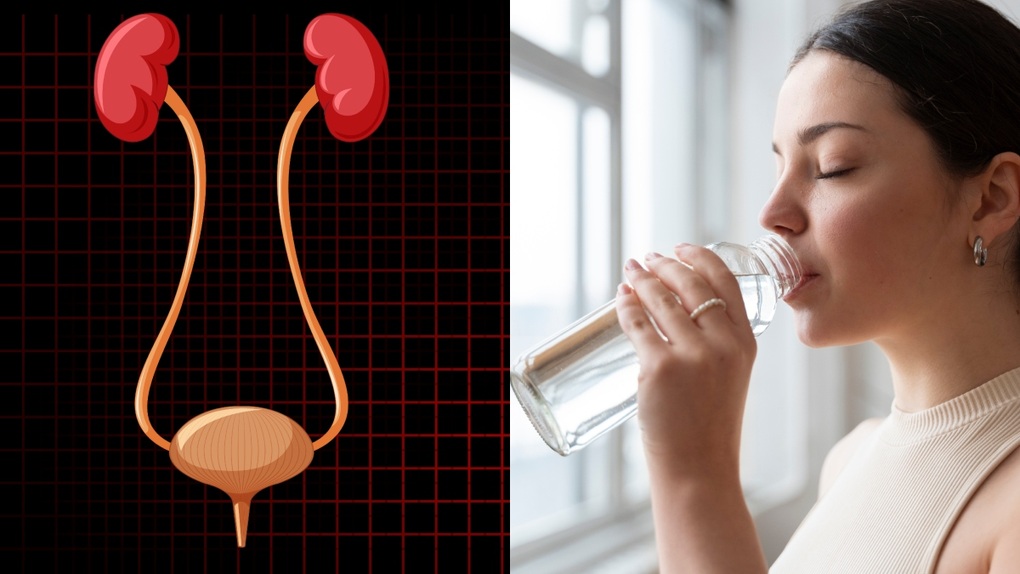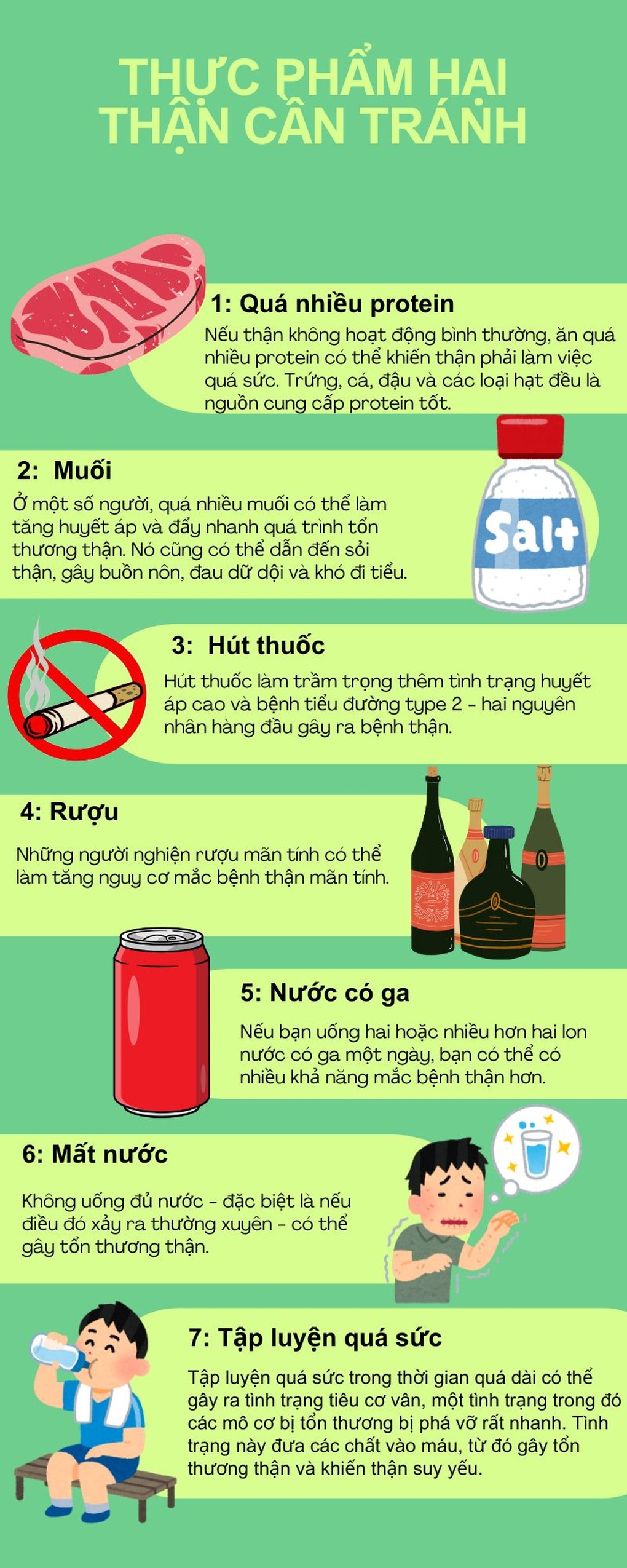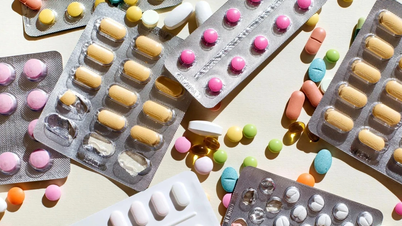According to the National Kidney Foundation, about 60-70% of your body weight is water. Every part of your body needs water to function properly. Water helps your kidneys remove waste from your blood through urine. Water also helps maintain blood circulation, allowing blood to flow freely to your kidneys and deliver essential nutrients.
The role of water in kidney health
Dehydration can be bad for you
If you become dehydrated, your body will have difficulty functioning. Mild dehydration can make you feel tired and impair your body's normal functions. Severe dehydration can lead to kidney damage.
Additionally, even mild dehydration can damage your kidneys if it occurs frequently.
Therefore, it is essential to drink enough water, especially after heavy exercise and in warm or humid weather.

Drinking enough water is very important for kidney health (Illustration: File Images).
Drink 8 glasses of water a day
There is no hard and fast rule that says everyone needs 8 glasses of water a day. This is a general recommendation.
Because everyone is different, daily water needs will vary from person to person. The amount of water you need depends on many factors such as age, climate, exercise intensity, and health status. Pregnant and breastfeeding women may also have different hydration needs.
However, drinking too much water is also not good. Although it is not common, this can happen to people who consume a lot of water, the sodium levels in the blood are diluted and lead to a dangerous condition called hyponatremia.
Urine reveals many things
Most people produce about 1.5 liters of urine per day (about 6 cups). The average person should drink enough fluids (plain water, unsweetened juice, or low-fat milk) to quench thirst and keep urine light yellow or colorless. Dark yellow urine may indicate dehydration.
Water helps prevent kidney stones and urinary tract infections
Kidney stones and urinary tract infections are two common medical conditions that can damage your kidneys. Staying hydrated can help.
Water helps carry important nutrients to the kidneys and move waste to the bladder as urine. If you don't drink enough water, the tiny filters inside the kidneys can become clogged, leading to kidney stones and infections.
Kidney stones form more slowly when there is water in the urine to prevent the crystals from sticking together. Water also helps dissolve antibiotics used to treat urinary tract infections, making them more effective. Drinking enough water also helps produce more urine, which helps flush out the bacteria that cause infections.
Be careful with pills and procedures
Drinking extra water with certain medications or before and after procedures that use contrast dye may help prevent kidney damage.
Is drinking water enough to cleanse the kidneys?
According to the Academy of Nutrition and Dietetics (AND), the kidneys are the body's natural filtration system and need adequate water to produce urine. Urine is the main waste product that allows the body to excrete toxins that the body does not need.
According to Healthline , when water intake is low, urine output is also low. Low urine output can lead to kidney failure, kidney stones, and urinary tract infections.
Therefore, drinking enough water is very important for the kidneys to properly eliminate excess waste and this is especially important during kidney cleansing.
According to AND, the recommended daily fluid intake is 3.7 liters for adult men and 2.7 liters for adult women. However, this fluid intake can vary depending on a number of factors, such as your age, activity level, and underlying health conditions.
As such, most people do not need to undergo a kidney cleanse or detox. However, following a heart-healthy diet can help support kidney health. Water is the best beverage to support kidney function.

Source: https://dantri.com.vn/suc-khoe/than-suy-yeu-am-tham-hay-nho-lam-dieu-nay-de-phong-xa-20250512153927396.htm


![[Photo] Anh Hoang - Dinh Duc successfully defended the men's doubles championship of the National Table Tennis Championship of Nhan Dan Newspaper](https://vphoto.vietnam.vn/thumb/1200x675/vietnam/resource/IMAGE/2025/5/23/d6ab3bcac02c49928b38c729d795cac6)



![[Photo] Top players gather at the 2025 Nhan Dan Newspaper National Table Tennis Championship](https://vphoto.vietnam.vn/thumb/1200x675/vietnam/resource/IMAGE/2025/5/23/9ad5f6f4faf146b08335e5c446edb107)



















































































Comment (0)